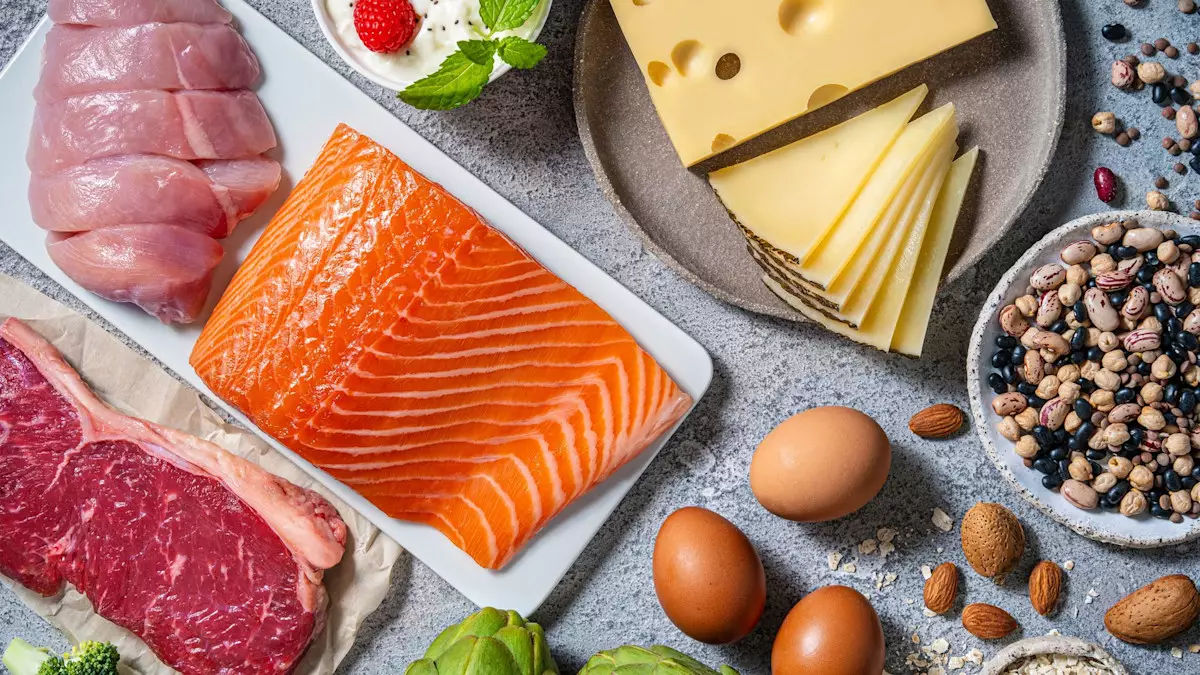For many, protein conjures images of intense workout sessions and hefty supplements, primarily associated with athletes and bodybuilders. However, the reality is far more profound—protein is a cornerstone of daily health that impacts everyone, regardless of lifestyle. This macronutrient serves as a vital building block for critical bodily functions, encompassing not just muscle repair but also collective wellness markers such as skin integrity, hormonal balance, and immune function.
In our fast-paced lives, it is easy to underappreciate the significance of protein. Busy schedules and the allure of trendy diets can mask our dietary deficiencies. Yet, for those women balancing careers, families, and social commitments, this neglect can manifest in various unexpected ways. From persistent fatigue to mood fluctuations, a protein-deficient diet can creep into our lives unnoticed, altering how we feel, look, and function.
The Hidden Signals of Protein Deficiency
We often dismiss unexplained bouts of tiredness or sudden cravings for sugary snacks, attributing them to stress or lack of sleep. However, these sensations may be vital signals from your body, indicating that something essential is missing. Protein plays a crucial role in regulating hunger hormones; thus, inadequate protein intake can leave you feeling unsatisfied even after meals, prompting incessant snacking. When your meals lack protein, your body sends out hunger pangs as it attempts to restore nutritional balance.
Consider this: if your go-to meals consist primarily of carbohydrates, bolstered by caffeine, you might be consciously or unconsciously setting yourself up for energy crashes and cravings. A simple addition of protein-rich foods—such as eggs, lentils, or lean meats—can establish prolonged satiety and subsequently stave off those pesky afternoon crashes.
Muscle Health and Metabolism: The Underlying Connection
While achieving muscle definition may be a common goal in fitness circles, muscle health serves a far greater purpose than aesthetics. Muscle tissue directly influences metabolism and daily functionality. Insufficient protein intake may compel your body to cannibalize its muscle stores in search of energy, causing gradual weakness and a decline in stamina. This is particularly concerning for women over forty, as maintaining muscle mass becomes paramount for sustaining long-term health and mitigating injury risks.
Integrating protein at each meal is essential, especially when coupled with strength-training activities. Such a strategy not only preserves muscle integrity but also enhances your sense of strength and capability. A body that feels robust is not just about physical appearances; it contributes to greater confidence and overall well-being.
The Toll on Aesthetics: Skin, Hair, and Nails
The signs of protein deficiency often first manifest through physical appearance. Many may be surprised to discover that thinning hair, lackluster skin, or brittle nails often stem not from aging or stress but from inadequate protein intake. This nutrient is vital for producing keratin and collagen—essential proteins that give our hair, skin, and nails their strength and vitality.
Where protein levels fall short, the body can exhibit early warning signs through its visible features. Therefore, if you find that your hair is thinning or your skin feels fatigued, it may be time to assess your nutritional intake rather than automatically attributing these changes to time’s passage or life stress.
The Impact on Mental Health and Emotional Wellbeing
Protein deficiency extends beyond physical aspects; it significantly affects mental health. The production of neurotransmitters—chemical messengers that govern mood, focus, and sleep—relies heavily on adequate protein consumption. With insufficient protein, you may notice a decline in energy levels, increased irritability, or even symptoms resembling anxiety or depression.
Your mental state could very well be reflective of your diet. Therefore, if you observe shifts in motivation or mood, it’s critical to consider whether you’re providing your brain with the nutrients it requires to function optimally. Recognizing craving patterns, especially those related to protein, may help in fostering a more balanced approach to diet.
Smart Protein Choices for Optimal Health
The general recommendation for protein intake averages around 0.8 grams for every kilogram of body weight. Yet, many women—particularly those who lead active lives, are pregnant, or are navigating hormonal changes—might require significantly more. Targeting 20 to 30 grams of protein per meal can be a more pragmatic benchmark.
Explore various protein sources: consider eggs, lean meats, quinoa, beans, or Greek yogurt. Balance these with colorful vegetables and whole grains for a fulfilling, nutrient-rich meal. Distributing your protein intake throughout the day ensures that your body remains nourished and, as a result, well-prepared to tackle whatever life throws your way.
Ultimately, an intentional focus on protein’s role in our diet opens up a path to better health, performance, and sustained well-being. So, take a moment to listen to your body’s cues and invest in your nutritional future for an enriched life. Never underestimate the transformative power of a protein-focused plate.

